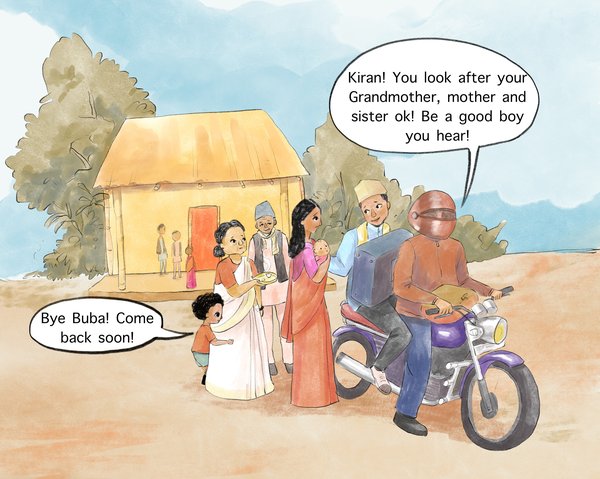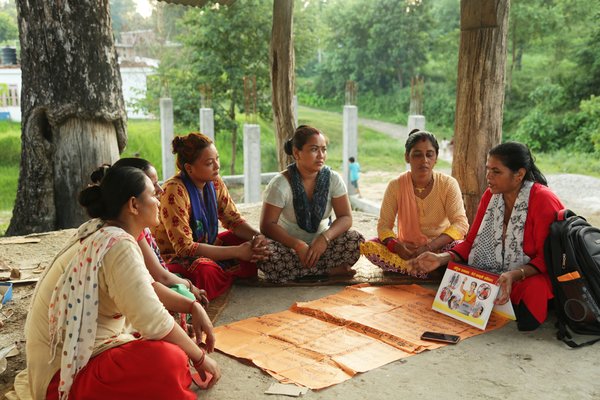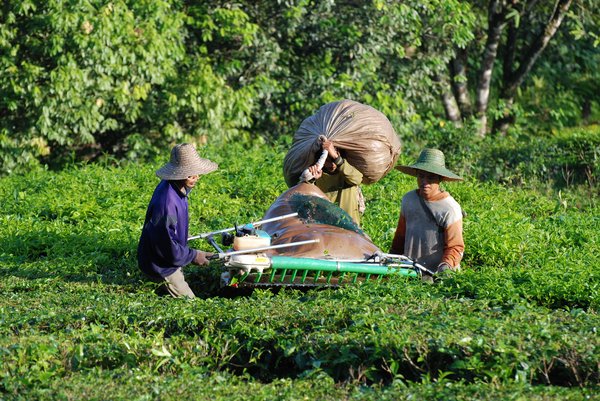
Photo by MIDEQ advisory board member Meena Poudel
She was Rupa Devi Ram of Saptari, southeast Nepal. Rupa’s spouse Narayan Ram has been working in Qatar for last 10 years as a painter. He migrated to Qatar through a local agent paying two lakhs Nepali Rupees (1,600 USD). Ram’s family arranged to pay this fee by taking a loan from a local moneylender who charged Ram’s family 5% interest. Initially, the agent told Narayan that it was a vacancy for car cleaner’s work in an automobile garage, however, the agent untruthful.Upon arrival, Narayan ended up working as stone breaker with no contract. Rupa represents thousands of unspoken voices of dreams generated by migration among the Ram community and similar marginalised groups in Saptari and its’ surroundings.
Sharing emotions through arts
NISER organised a three-day painting workshop from 7 to 9 June 2023 in collaboration with the Women, Children, and Community Development Centre (WCCDC) in Rajbiraj, with the wives of migrants whose husbands work in the Gulf Cooperation Council (GCC) countries and Malaysia. The contractual nature of migration does not allow men to take their spouses hence these wives stay back in Nepal with the children and parents of the migrants. The workshop was part of MIDEQ’s impact interventions. It comprised of a painting workshop, a short survey and discussion about painting followed by three days of orientation training. The final day consisted of another painting workshop then a survey and discussion about paintings.
The aim of the orientation was to support the wives of migrants to understand the migration process - from life in the destination country to knowledge of formal support system for migrants and their families and how to deal with the psycho-social challenges of having a family member away. The painting workshop aimed to make migrant wives familiar with the team and comfortable to learn and ask questions during the orientation. The survey and discussion fostered understanding of how the wives experience the migration of husbands. It helped bring out the dreams and challenges facing wives of migrants performing a complex gendered role while their men, structurally considered as head of the family, are away for work.
Art work was chosen as a strategy to enable women with no formal education to speak about their experiences of managing, largely extended (joint) family. The women also manage relationships within their community and more broadly with wider society including schools, markets, and remit companies. For example, many women expressed how they encounter the moneylender when repaying their family’s migration loan. In total, 108 women of various village and municipal councils of Saptari attended the workshop and attempted to draw their feelings.



